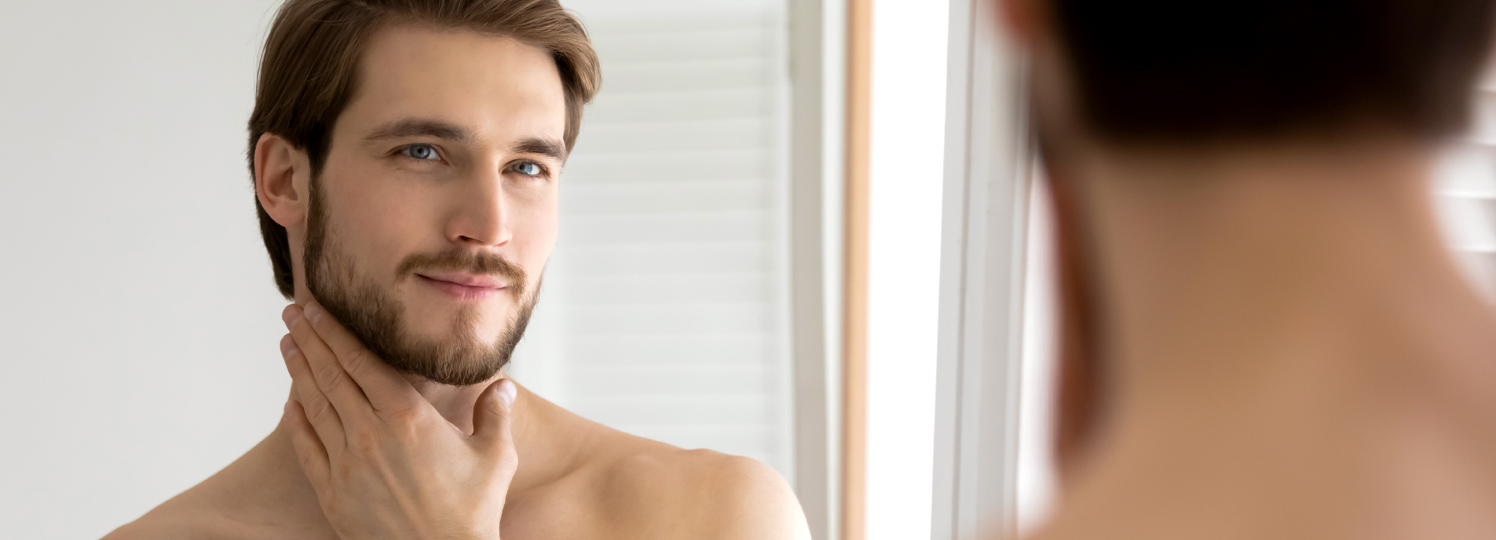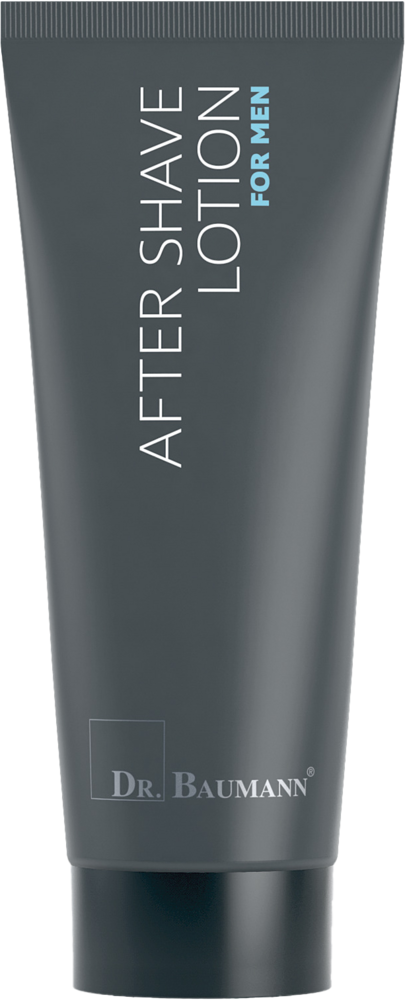

Skin care for men


Skin care for men
With its special care formula of macadamia oil, jojoba oil and urea this After Shave Lotion provides the skin with high-quality oils and moisture. Panthenol, natural vitamin E and bisabolol soothe the skin stressed by the shave and support it naturally during regeneration. This lotion completes the shave and is of course also suitable for sensitive skin.
75 ml Tube
Art.-Nr. 1754
Aqua, Butylene Glycol, Macadamia Ternifolia Seed Oil, Simmondsia Chinensis Oil, Urea, Sucrose Stearate, D-alpha Tocopheryl Acetate, Panthenol, Betaine, Lecithin (and) Alcohol, Sodium Lactate, Cetearyl Glucoside, D-mixed-Tocopherols, Bisabolol, Lactic Acid, Allantoin, Xanthan Gum, PEG-40 Hydrogenated Castor Oil, Potassium Glycyrrhizinate
Aqua:
Water. It accounts for around 65% of the weight of the human body and is therefore of fundamental importance for bodily functions, including those of the skin. In many cosmetic products (aqueous solutions, cleansers, emulsions), water is the ingredient with the largest proportion of the formulation in terms of quantity and forms the basis of the aqueous phase in emulsions. Water is a good solvent for polar (hydrophilic) substances such as alcohols, water-soluble vitamins or salts. For use in cosmetic products, the water used is generally pre-treated to remove microorganisms that could lead to spoilage of the product or dissolved salts that may impair the stability of emulsions or gels (sterilization and desalination).
Butylene Glycol:
Solvent with moisturizing effect on the skin, very good compatibility, should be preferred to propylene glycol in products used daily
Simmondsia Chinensis Oil:
Some kind of oil
Urea:
The water-soluble urea is used in numerous cosmetic products. Urea is a component of the natural moisturising factors of the horny layer (content between 7 % and 12 %; up to half lower in chronically dry skin) and has a high water-binding capacity. It contributes to sustained moisturisation of the skin and reduces transepidermal water loss. Urea has a keratoplastic effect, in higher concentrations it has a keratolytic effect and is therefore also used in the care of skin affected by psoriasis or atopic dermatitis (neurodermatitis). Urea is also able to reduce the irritating potential of surfactants.
Sucrose Stearate:
O/W emulsifier obtained from cane sugar and fat, very skin-friendly, moisturising.
D-alpha Tocopheryl Acetate:
Natural vitamin E acetate; storage form in the skin, is converted into the active form by dissolving the acetate bond; antioxidant with skin-protecting properties, e.g. against UV radiation, retains moisture, delays premature skin ageing
Panthenol:
D-panthenol = provitamin B5: Improves and increases the skin's ability to retain moisture, has an anti-inflammatory effect, reduces or inhibits itching. Stimulation of epithelialization: Small wounds (shaving), skin abrasions, blisters heal better. When used in hair care products, it is not only deposited on the hair and scalp, it also penetrates them and has a long-term effect. As pantothenic acid is an important component of healthy hair, the precursor D-panthenol serves as “food for the hair” according to scientific studies. It provides the hair with long-lasting moisture, improves the combability of the hair, reduces the formation of split ends, improves the condition of damaged hair, thickens the hair and gives it shine. The brittleness of fingernails is reduced.
Betaine:
Trimethylglycine: metabolic product of choline breakdown, also used in medicine to regulate the metabolism, obtained from beet molasses. Natural conditioner for skin and hair, endogenous substance, therefore very well tolerated, should not be associated with cocamidopropyl betaine in terms of allergies
Lecithin (and) Alcohol:
Lecithin concentrate in alcohol, can form liposomes, in creams as a high-quality co-emulsifier
Sodium Lactate:
Sodium salt of lactic acid: Has a moisturising effect on the skin, with the physiological pH value of the skin averaging 5.5. Important component of the natural moisturising factor (NMF) and the acid mantle of the skin.
Cetearyl Glucoside:
Plant-based emulsifier, composed of body-identical fatty alcohols and body-identical glucose molecules.
D-mixed-Tocopherols:
Is the name of a mixture of natural tocopherols (vitamin E; D-alpha-, beta-, gamma- and delta-tocopherol). Vitamin E is the most important skin protection vitamin, which protects the skin from UV rays and oxygen radicals.
Bisabolol:
An active ingredient of camomile, anti-inflammatory
Lactic Acid:
Lactic acid. Occurs as a metabolic product in the body and on the skin, has a peeling effect on the horny layer in higher concentrations and at a low pH value of 2 to 3, supports the moisture content in buffered form (physiological pH value of the skin approx. 5.5) and preserves the skin's protective acid mantle.
Allantoin:
Allantoin is a body-identical, water-soluble substance and is chemically related to urea. It is found in various plants but is now produced synthetically for use in cosmetics. Its most important property is the stimulation of new cell formation. It promotes collagen formation, skin regeneration and wound healing, stimulates desquamation, smoothes the skin and can have a soothing effect on atopic dermatitis.
Xanthan Gum:
Polysaccharide, natural gelling agent with very good skin-compatible properties, is obtained biotechnologically.
PEG-40 Hydrogenated Castor Oil:
Castor oil-based solubilizer for essential oils in water.
Potassium Glycyrrhizinate:
Potassium salt of glycyrrhizic acid. Anti-inflammatory active ingredient obtained from the root of the liquorice plant.